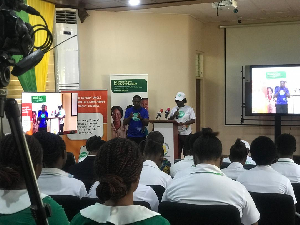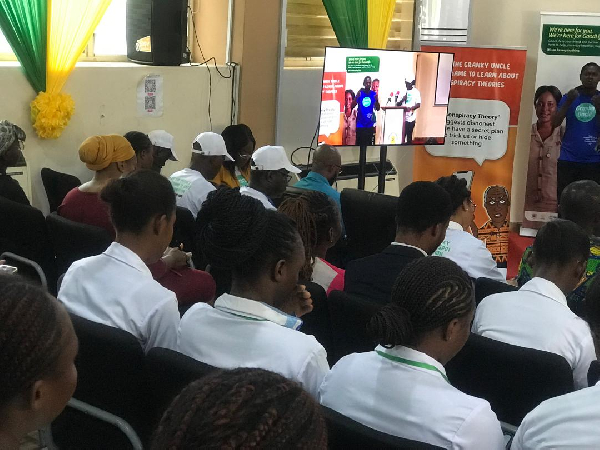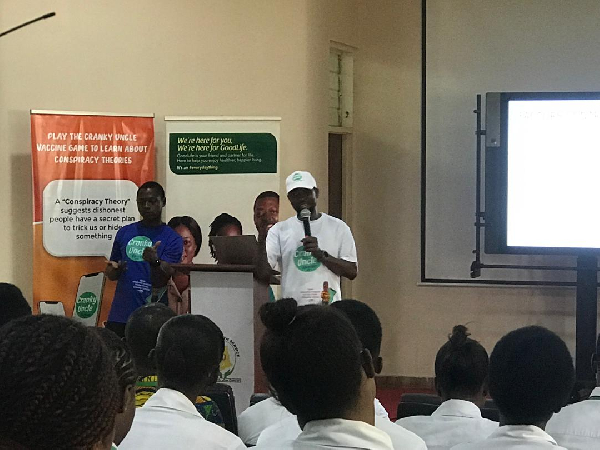 The GHS has introduced Cranky Uncle Vaccine Game to tackle misinformation
The GHS has introduced Cranky Uncle Vaccine Game to tackle misinformation
In the ongoing battle against misinformation surrounding vaccines, the Ghana Health Service (GHS) has taken a creative step forward with the introduction of the "Cranky Uncle Vaccine Game."
Launched on April 24, 2024, at the Health Division Promotion Division auditorium in Accra, this mobile game aims to equip users with the tools to identify and combat misinformation and disinformation related to vaccination.
Dr. Kwame Amponsa-Achiano, Programme Manager, Expanded Programme on Immunization Ghana Health Service, stated “Everyone has a role to play in improving vaccination: routine & vaccination campaigns including outbreak response vaccination.”
The Cranky Uncle Vaccine Game employs the principles of inoculation theory, a psychological framework that aims to build public resilience against misinformation. Through a blend of evidence, humor, cartoons, and critical thinking, players are guided by the character "Cranky Uncle" through various levels, each introducing new techniques of misinformation commonly encountered globally.
Players earn points as they progress, while Cranky Uncle becomes increasingly agitated, a playful incentive to engage with the content and sharpen their ability to discern truth from falsehood.
Iddi Iddrisu, SBC Officer at UNICEF Ghana, emphasized the significance of the game within the Ghanaian context.
He cited data from the 2023 State of the World's Children (SOWC) report, which placed Ghana at the bottom of the vaccine confidence table, highlighting the urgent need to address hesitancy and misinformation surrounding immunization.
Recognizing the impact of misinformation on vaccine uptake, the game seeks to preemptively address and debunk common misconceptions, ultimately aiming to enhance vaccine decision-making and resilience in public health campaigns against vaccine-preventable diseases."
The game draws attention to five key characteristics of science denial, including the use of fake experts, logical fallacies, impossible expectations, cherry-picking, and conspiracy theories. By familiarizing players with these tactics, the game empowers them to assess information and make informed decisions regarding vaccination critically.
Explaining the mechanics of the game, Dr Mabel Kissiwaa Asafo, Acting Director of the Health Promotion Division, stated that it is structured around two main characters: a Cranky Uncle, who employs various misinformation techniques, and a health worker, who serves as a trusted messenger countering these tactics with scientific facts supporting vaccination.
The game according to her is available on multiple platforms, including a voice-based app called Agoo in six local languages, a WhatsApp chatbot, and internet platforms, the game ensures accessibility for a wide audience.
Initial uptake research conducted in Ghana, Tanzania, Uganda, and Kenya has shown promising results, indicating a shift in attitudes toward vaccines, improved vaccine literacy, and positive behavioral changes among players.
In her address on behalf of the Director-General of the Ghana Health Service emphasized the importance of deploying the game through diverse channels to reach a broader audience.
She highlighted the significance of leveraging technology and innovation to achieve immunization goals, particularly for children, as part of the broader 2030 Agenda.


AM/AE
Watch the latest episode of Everyday People on GhanaWeb TV below:
Click here to follow the GhanaWeb General News WhatsApp channel